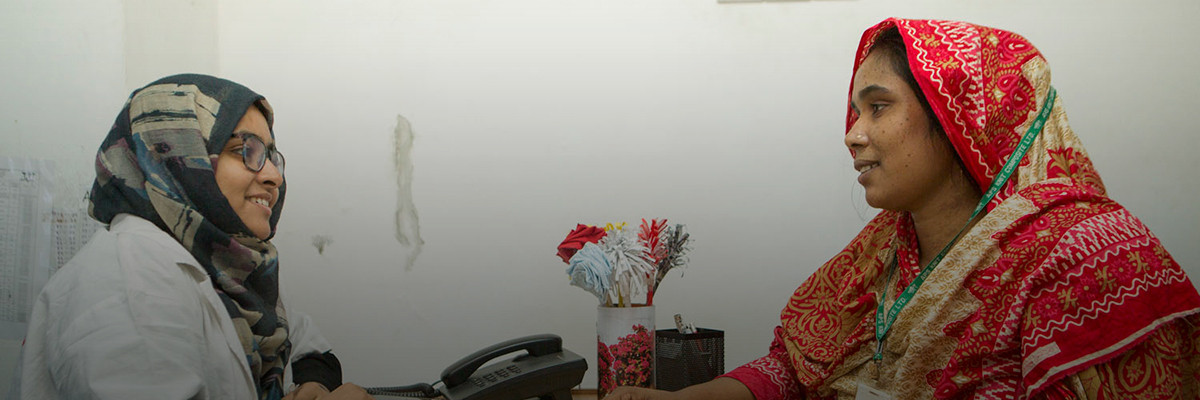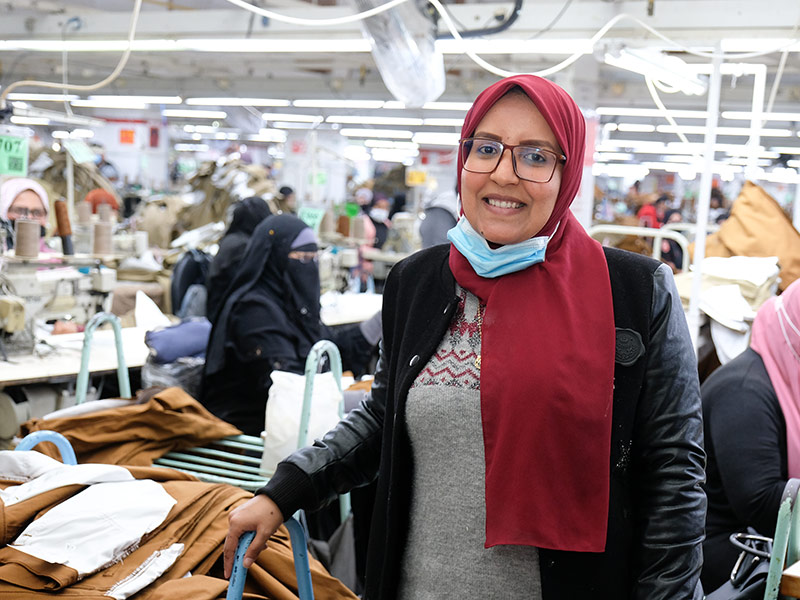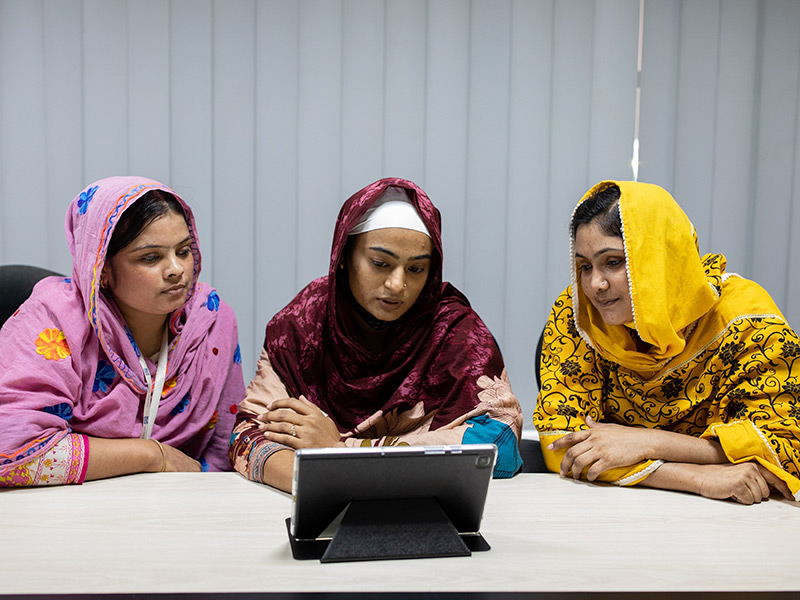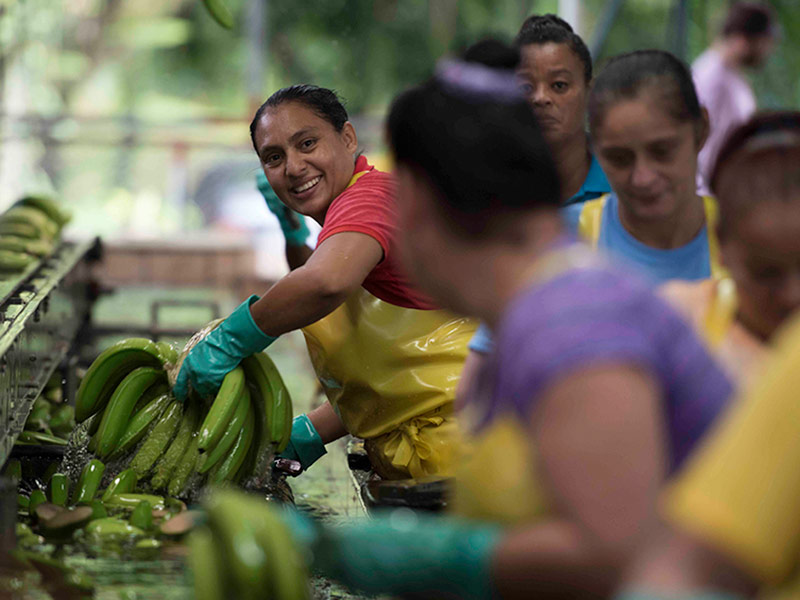
Authors
-
Dominic Maes
Former Manager, Communications and Marketing, BSR
Today sees the release of the new business guide, How Businesses Can Invest in Women and Realize Returns, co-authored by the UN Foundation, the Evidence Project led by the Population Council, and BSR’s HERproject. The guide encourages corporate leadership and showcases how companies can take action in the field of women workers’ health and empowerment. We sat down with Robyn Russell, Deputy Director of the Universal Access Project at the UN Foundation, to discuss private sector action for women’s health and well-being.
Dominic Kotas: What is the link between health and empowerment in developing countries?
Robyn Russell: If you think about your own life, it becomes very clear: if you have access to the health services you need—including family planning, prenatal care, maternity leave, and so on—you’re going to be more empowered and more in control of your life.
Women in developing countries, who might be entering the formal workforce for the first time, need all the same things that we do in order to be healthy and empowered and advance their careers. In particular, they need family planning, because if you can’t choose when you become a parent, you can’t have very much control over your career.
Kotas: What are the biggest challenges around women’s health globally?
Russell: Our guide focuses on women in supply chains, many of whom move from rural areas to urban areas for their first employment. They have often lacked basic healthcare services: everything from menstrual hygiene management, to family planning, to prenatal care, to information about protecting themselves from sexually-transmitted infections. So, this is a real opportunity to meet women where they are and provide them with those services, whether that’s through factory clinics or referrals to local clinics. Of course, the stakes in developing countries are much higher, because we know that lack of access to family planning and good maternal care are leading causes of death and disability for many women and girls in developing countries.
Kotas: How far have we come and how far do we still have to go?
Russell: Historically, these areas have been underfunded and deprioritized. Under the Millennium Development Goals (MDGs), we saw minimal progress on reductions in maternal mortality and access to family planning. Fortunately, the new Sustainable Development Goals (SDGs) have a focus on health (Goal 3) and gender equality (Goal 5), and we’re hopeful we can make progress.
The global health community is working very hard on women’s health through several initiatives, such as Family Planning 2020. However, there is a real role and opportunity for the private sector, especially as women move out of the informal workforce and into the formal workforce. One billion women will enter the global workforce over the next two decades, and 94 percent of them will be in emerging and developing economies. Sectors like textiles, clothing, and footwear employ an estimated 60-75 million people, of which three quarters are women. Action in global supply chains to advance women’s health can have a major impact.
Kotas: We’ve seen more action from business on this issue over the past decade. What has been the driver for this?
Russell: We’re increasingly seeing consumers making purchasing choices based on the social and ethical credentials of brands. Businesses are also realizing that by investing in the health and empowerment of women, particularly in their supply chains, they can see a return on investment—they can reduce turnover, absenteeism, and so on. It’s a win-win for business: you have healthier, happier workers, and you’re reducing costs to production while creating an ethically-made product that’s in greater demand from your customers. Our new business guide highlights current investments from 26 companies working with 11 NGOs in 19 countries, giving readers a number of models for action. From the global public health side, health organizations are realizing they can reach more people by using these networks to make interventions through companies and workplaces.
Kotas: Who and what can help business go further?
Russell: To date, most investments have been as smaller pilots—but we are now seeing companies ready to scale throughout their supply chains and networks. If it’s a matter of support and coordination, we at the UN Foundation are prepared to help companies bridge that gap. NGOs, civil society groups, labor groups, and governments also have a role to play. In the business guide, we outline a list of organizations around the world that are already working with companies and are ready to jump in and do more.
Another avenue is to make sure that women’s health and empowerment are incorporated into standards and certifications, so that these practices are sustainable in the long-term.
We also need buy-in from the folks on the ground: the workers, the local vendors, and the governments in countries where this is happening. We want to listen to workers and understand what they need, so that we can make the most impactful interventions possible.
Kotas: What would be your message to business leaders?
Russell: I would have two. First: If you want to get ahead of the curve on this, now is the time to make these investments. This will be the new norm moving forward. And secondly, we—the global health community, NGOs, and others—stand ready to help you make this transition.
BSR’s latest sustainability insights and events straight to your inbox.
Topics
Collaborative Initiatives
Let’s talk about how BSR can help you to transform your business and achieve your sustainability goals.







